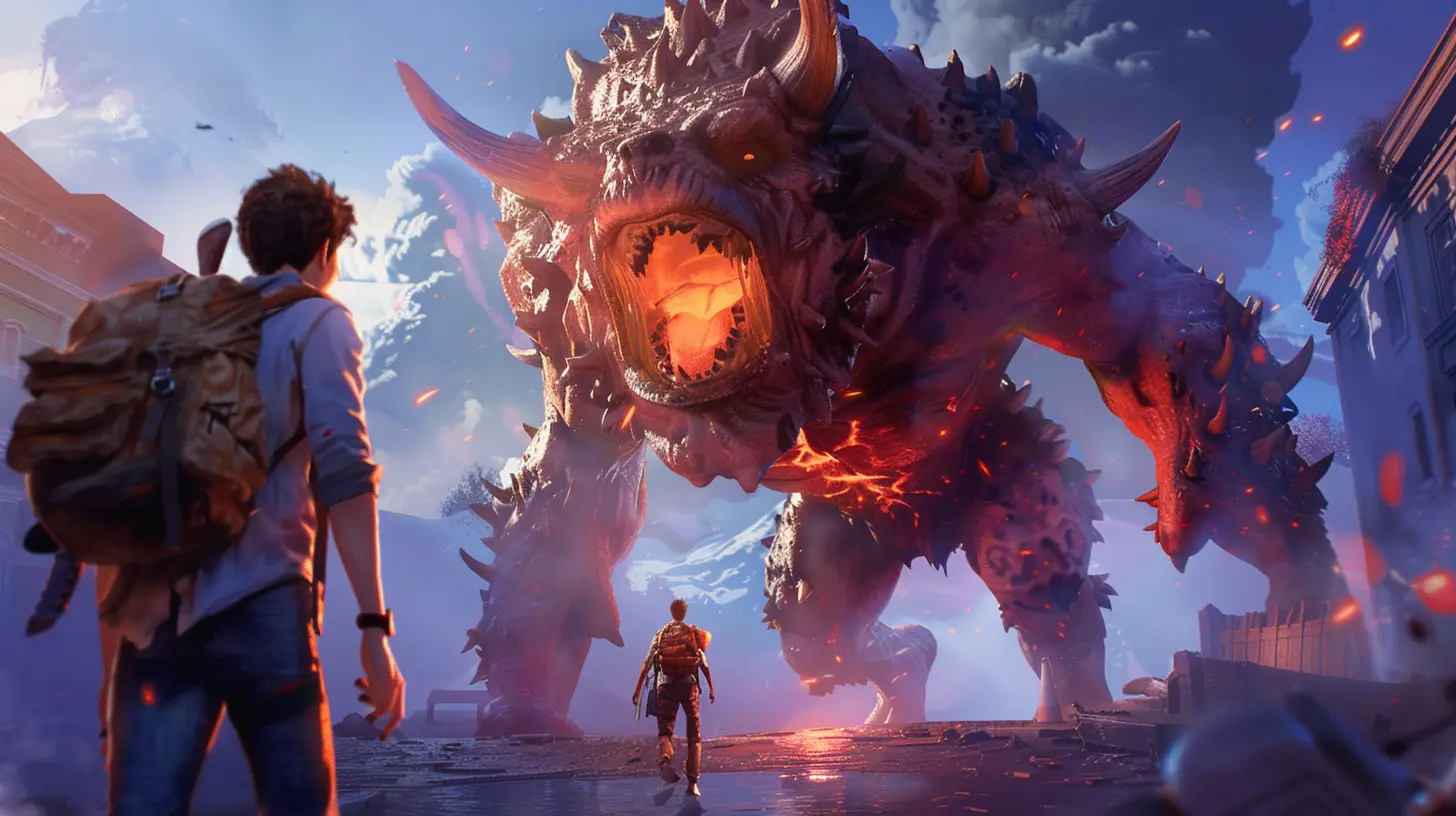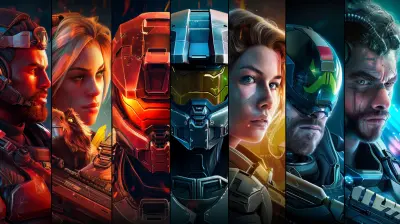Exploring the Role of Timed Exclusivity on the Epic Games Store
27 July 2025
Let’s not beat around the bush—if you’re a gamer, you’ve probably wrestled with the concept of timed exclusivity at some point. Love it or hate it, timed exclusivity has become a major player in the world of modern gaming, especially since the Epic Games Store (EGS) decided to fully embrace the strategy as part of its business model. With headlines flaring up every time a new title gets announced as “exclusive to Epic,” it’s safe to say it’s a hot-button issue in the gaming community. But what’s the deal with timed exclusivity? Why does Epic Games keep leaning so heavily on it? And what does it mean for us—the gamers?
Grab a snack, because we’re diving deep into the mechanics, motivations, and ramifications of timed exclusivity on the Epic Games Store. Trust me, there’s more to it than just holding games hostage (though it can sometimes feel that way).
What Is Timed Exclusivity, Anyway?
First things first—let’s define the beast we’re dealing with. Timed exclusivity means that a game is only available on a specific platform or store for a certain period, usually ranging from a few months to a year. After the exclusivity window ends, the game gets released on other platforms like Steam, PlayStation, Xbox, or even physical copies.Think of it like a new blockbuster movie hitting theaters before landing on streaming services. Except, in this case, it’s not about popcorn—it’s about where you’re allowed to buy the game. Epic Games has doubled down on this approach, signing deals with developers and publishers to make their games exclusive to the Epic Games Store for a set amount of time. Sounds simple, right? Well, it’s anything but.
Why Is Epic Games Betting Big on Timed Exclusivity?
Epic isn’t doing this on a whim—there’s a method to their madness. Let’s break down the reasons why timed exclusivity is central to their playbook. Spoiler alert: it’s all about strategy and market domination.1. Carving Out a Space in Steam's Shadow
For years, Steam was the place for PC gamers to buy their games. It was like the Walmart of digital gaming stores—huge, convenient, and practically unavoidable. Enter Epic Games Store in December 2018. They needed a way to compete, and fast.Timed exclusivity gave Epic a way to stand out. By locking down big-name titles like Metro Exodus, Control, and Borderlands 3, they forced gamers to come to their store. Imagine opening a pizza shop next to a Pizza Hut and managing to lure customers in simply because you’re the only place selling pepperoni calzones. That’s basically what Epic did with timed exclusivity deals.
2. Sweet Deals for Developers
Here’s where Epic turned some heads. Unlike Steam’s standard 30% revenue cut, Epic only takes 12%. Pair this with hefty upfront payments for timed exclusivity, and you’ve got a developer’s dream. For smaller studios, this can mean financial stability, better resources, and less risk. Sure, it might irritate fans temporarily, but from a business perspective, it’s a hard offer to pass up.Think of it like a small indie band getting signed by a record label. Yeah, they might play smaller venues temporarily, but they’re getting the funding and exposure they need to grow. For many developers, Epic’s exclusivity deals are a ticket to success.
How Does Timed Exclusivity Impact Gamers?
Ah, now here’s the juicy part. For us gamers, timed exclusivity can feel like a mixed bag. Let’s break it down into the good, the bad, and the downright annoying.1. The Good: Free Games and Better Deals
You’ve got to admit, Epic isn’t stingy when it comes to freebies. They’ve handed out countless free games over the years, from big hits like Grand Theft Auto V to indie gems like Celeste. Why? To sweeten the deal and soften the sting of exclusivity. Plus, the competition with Steam has led to more frequent sales and discounts. Who doesn’t love saving a few bucks?2. The Bad: Fragmentation of Your Game Library
If you’re anything like me, you probably dream of having all your PC games in one neat, organized library. But with Epic snatching up exclusives, you’re forced to juggle multiple launchers. It’s like having to carry five different wallets because each store only takes its own version of Monopoly money. Annoying, right?3. The Ugly: Community Backlash
No one likes feeling forced into something, and gamers are very vocal about their discontent. When Metro Exodus was pulled from Steam just weeks before release, people were furious. Steam’s forums were flooded with complaints, and some fans even boycotted the game entirely. This kind of backlash creates a lot of tension between developers, publishers, and the gaming community.
Is Timed Exclusivity Actually Bad for the Industry?
Here’s the million-dollar question: Is this whole timed exclusivity thing a blight on gaming, or is it just a necessary evil? The answer is… complicated.1. The Case Against Timed Exclusivity
Critics argue that timed exclusivity is anti-consumer. It limits choice, disrupts communities, and forces gamers to use platforms they might not like. Plus, let’s not forget about regional availability issues. Some gamers in specific countries can’t access the Epic Games Store, shutting them out entirely from exclusive titles.2. The Case for Timed Exclusivity
On the flip side, exclusivity deals can enable the creation of better games. Developers get the funding they need, and gamers ultimately get higher-quality products. It’s also worth noting that exclusivity isn’t new—it’s been a thing for decades in the console gaming world. Epic is just dragging the concept into the PC era.At the end of the day, it’s a trade-off. Gamers sacrifice convenience for the sake of industry growth. Whether that’s a fair trade? Well, that’s up to you to decide.
The Future of Timed Exclusivity and the Epic Games Store
Looking ahead, it seems unlikely that Epic will abandon timed exclusivity anytime soon. It’s integral to their strategy, and it’s working. The Epic Games Store has grown immensely since its launch, amassing millions of users and securing a foothold in a market once dominated by Steam.But here’s the thing: competition fosters innovation. By challenging Steam, Epic has forced the entire PC gaming ecosystem to evolve. We’re seeing better deals, more transparency, and a bigger push for cross-platform compatibility. Sure, timed exclusivity might be a pain, but it’s also shaking things up for the better in some ways.
Wrapping Up
So, what’s the takeaway here? Timed exclusivity on the Epic Games Store is a double-edged sword. It’s frustrating and inconvenient for gamers, yet it offers undeniable benefits for developers and the industry as a whole. Whether you love it or hate it, there’s no denying its impact on gaming.At the end of the day, we’re all just passionate about our favorite hobby, and that passion fuels these debates. Whether you’re Team Steam or Team Epic, what really matters is the games themselves. Because let’s be honest—once you’re immersed in a great game, does it really matter where you bought it?
all images in this post were generated using AI tools
Category:
Epic Games StoreAuthor:

Kaitlyn Pace
Discussion
rate this article
1 comments
Grayson Price
Timed exclusivity can frustrate gamers, but it often boosts visibility and sales for developers, reshaping the industry landscape significantly.
August 12, 2025 at 4:43 AM

Kaitlyn Pace
Thank you for your comment! Indeed, timed exclusivity can be a double-edged sword, benefiting developers while causing frustration among gamers. It's a key factor in shaping the industry's dynamics.


